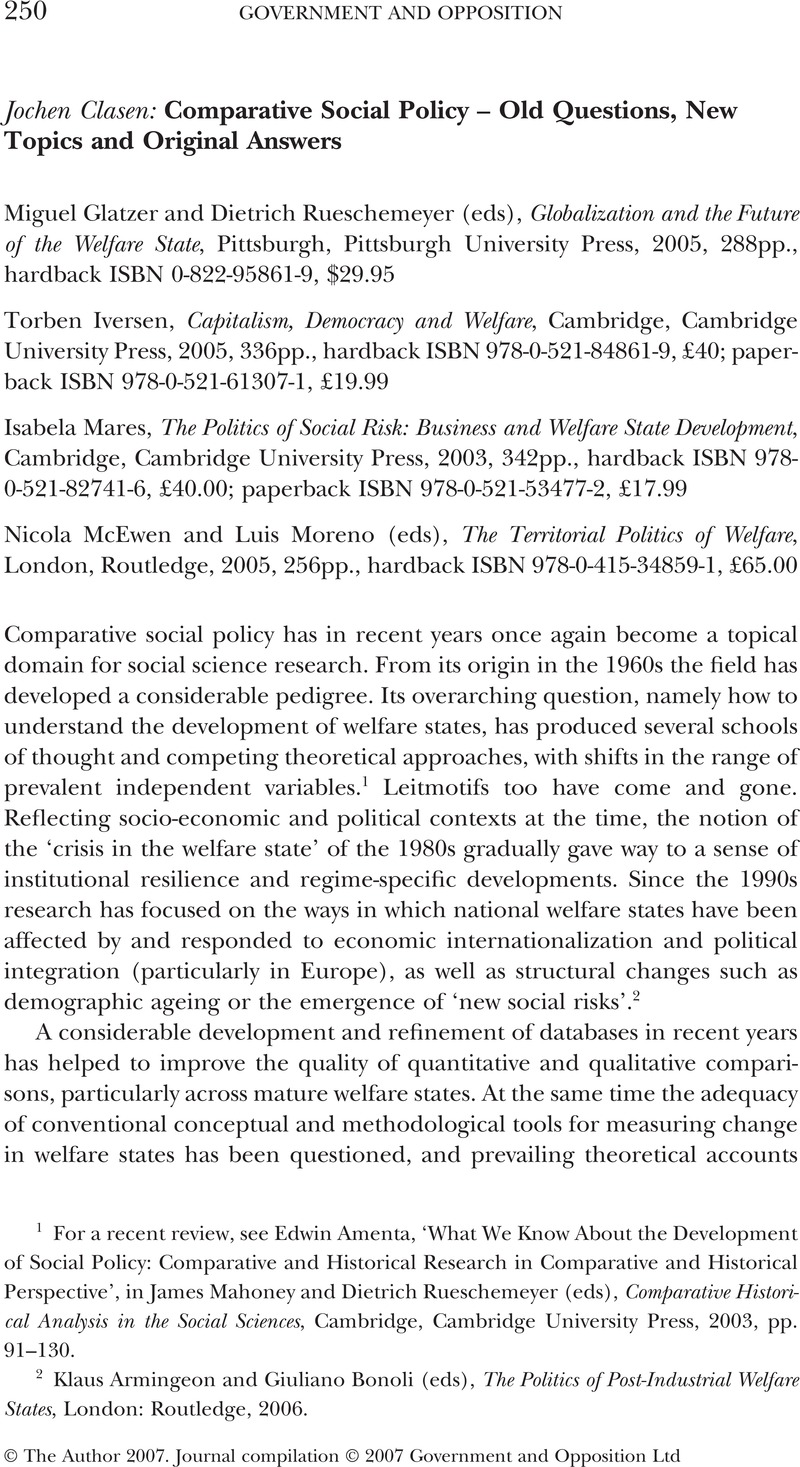Published online by Cambridge University Press: 28 March 2014

1 For a recent review, see Edwin Amenta, ‘What We Know About the Development of Social Policy: Comparative and Historical Research in Comparative and Historical Perspective’, in James Mahoney and Dietrich Rueschemeyer (eds), Comparative Historical Analysis in the Social Sciences, Cambridge, Cambridge University Press, 2003, pp. 91–130.CrossRefGoogle Scholar
2 Klaus Armingeon and Giuliano Bonoli (eds), The Politics of Post-Industrial Welfare States, London: Routledge, 2006.Google Scholar
3 Jochen Clasen and Nico A. Siegel (eds), Investigating Welfare State Change – The Dependent Variable Problem in Comparative Analysis, Cheltenham, Edward Elgar, 2007.Google Scholar
4 Paul Pierson (ed.), The New Politics of the Welfare State, Oxford, Oxford University Press, 2001.Google Scholar
5 For a defence of the former and criticism of the latter, see Korpi, Walter, ‘Power Resources and Employer-Centred Approaches in Explanations of Welfare States and Varieties of Capitalism: Protagonists, Consenters, and Antagonists, ‘World Politics, 58: 2 (2006), pp. 167–206.CrossRefGoogle Scholar
6 Peter A. Hall and David Soskice, Varieties of Capitalism. The Institutional Foundations of Comparative Advantage, Oxford, Oxford University Press, 2001.Google Scholar
7 Hall, Peter A. and Soskice, David, ‘Varieties of Capitalism and Institutional Change: A Response to Three Critics’, Comparative European Politics, 1 (2003), pp. 241–50.CrossRefGoogle Scholar
8 Korpi, ‘Power Resources and Employer-Centred Approaches’.Google Scholar
9 Herbert Obinger, Stephan Leibfried and Francis G. Castles (eds), Federalism and the Welfare State, Cambridge, Cambridge University Press, 2005.Google Scholar